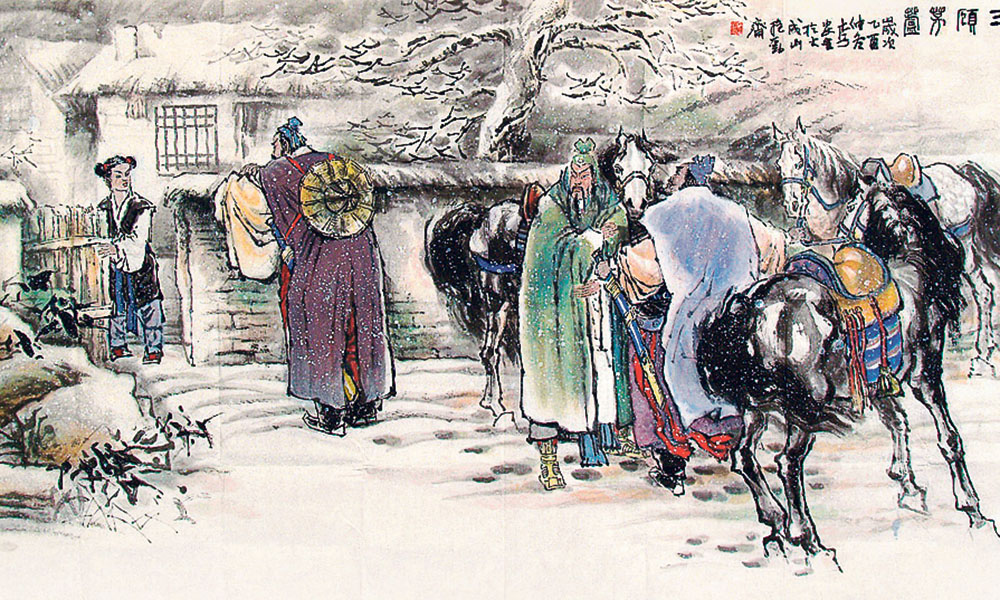“Dizi Gui” (Standards for Being a Good Student and Child) is a traditional Chinese textbook for children that teaches children morals and proper etiquette.
In Chapter 3 of Dizi Gui, we are told that we must first ask if someone is inside a private room before entering. Before entering a room, we should also make ourselves heard, so that the people inside will know that someone is approaching. If those inside ask who it is, we should answer with our name instead of “me” or “I”.

These simple actions of courteousness are important because they leave a good impression on others, as demonstrated by the stories of Liu Bei and Mencius.
Three Visits to the Thatched Cottage
During the late Eastern Han dynasty, the great strategist Liu Bei was searching for talents who could assist him in restoring the Han dynasty. He consulted well-known litterateur Sima-Hui, who said, “You need an elite scholar with exceptional insight into current affairs to help you. In this region, there are only two such people—‘Fulong’ (Crouching Dragon) and ‘Fengchu’ (Young Phoenix).”
Liu Bei later came to realise that “Fulong” was actually Zhuge Liang, an intelligent and learned scholar. Zhuge Liang lived in a secluded, thatched cottage in Longzhong, which was 20 kilometres west of Xiangyang city, Hubei province.
Liu Bei personally trekked through the deep winter snow three times to visit Zhuge Liang’s thatched cottage. But Zhuge Liang didn’t show up until the third visit.
When they finally met, the two discusssed current affairs at length in Zhuge Liang’s home. Liu Bei deeply admired Zhuge Liang for his knowledge and foresight, and requested Zhuge Liang to be his mentor and help him in his cause. Touched by Liu’s sincerity, Zhuge Liang agreed to be Liu’s military advisor.
With Zhuge Liang’s help, Liu Bei eventually founded the state of Shu Han and became its first ruler.
Mencius’ Mother Teaches Him Propriety
Mencius, who lived during the Warring States Period, is the most famous Confucian scholar after Confucius. His mother, who raised Mencius by herself, is often held up as an exemplary female figure in Chinese culture.
One day, Mencius chanced upon his wife squatting down in a private room. This made Mencius angry, as he felt she had overstepped the boundaries of propriety by sitting in such a vulgar position. He even thought of divorcing his wife.
When Mencius’s mother heard of this, she said to Mencius: “It is you who have no propriety, not your wife. According to the rules of propriety, when you are about to enter a room, ask who is inside, When you are about to enter a hall, raise your voice; when you enter a door, keep your eyes down. The reason for the rules is so that people in the rooms can prepare themselves. It is you who didn’t have propriety in advance.”
Mencius realised the error in his thinking, and immediately dismissed the idea of leaving his wife.
















